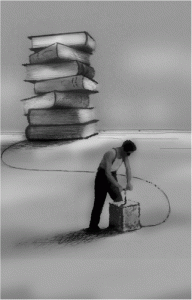 Who controls the past controls the future…: Fall in line or be in the firing line is the message historians are receiving from governments around the world – Sally Gimson, 2018
Who controls the past controls the future…: Fall in line or be in the firing line is the message historians are receiving from governments around the world – Sally Gimson, 2018
Rewriting history is a global trend as governments seek to persuade people to believe their versions of events, says Sally Gimson
“IF THE PARTY could thrust its hand into the past and say of this or that event ‘it never happened’ – that, surely, was more terrifying than mere torture and death?” This was George Orwell, 70 years ago in his novel Nineteen Eighty-Four.
What Orwell feared is happening now. Authoritarian governments in all corners of the world are trying to construct their own version of the past, passing laws that make their versions of history the only ones allowed – and in some cases locking up historians who challenge them.
Governments in eastern Europe and Russia let go of the historical narrative for a while and allowed history to be written by individuals, civil society groups and others. For a short time after the fall of the Berlin Wall, they followed the example of countries such as Germany, which has spent much of the last 70 years coming to terms with its Nazi past.
But in the past year alone, we have seen historians sacked from museums and cultural boards in Poland, archives closed down in Hungary and Western funders of historical and civil society groups, such as George Soros, potentially barred from their home countries. In Russia, Turkey and Iran, there have been recent cases of historians detained or locked up.
Yury Dmitriev is a historian from the west of Russia, on the Finnish border. He made it his life’s work to identify the people executed on Joseph Stalin’s orders and buried in mass graves in the woods around his home in Sandarmokh. He has been so successful that 90% of the people murdered have now been identified. His work has been part of a project – led by a group, aptly called Memorial – which seeks to make sure that the past is remembered everywhere in Russia.
But the Russian authorities have decided they want to bury that bloody history and Memorial and Dmitriev with it. The official claim now backed up by bogus historical “evidence” is that the bodies which litter the woods are Russian prisoners of war, shot by the Finns. Dmitriev was prosecuted on trumped-up child pornography charges – of which he was cleared – and is now being detained for “assessment” on psychiatric grounds.
John Crowfoot, a British translator who has been gathering support for Dmitriev, told Index the persecution was part of a nationalist push by the government to reassert Russian greatness.
“Partly they want to refer to a great Soviet past. One of the aspects of that is the defeat of Germany and Stalin as the great leader, not a monster or a war criminal,” he said.
Jan Kubik, professor of Slavonic and East European Studies at London’s UCL, is not surprised about the return of authoritarianism in Russia and the persecution of historians. But he is particularly distressed about the populist nationalism emerging in Poland and Hungary.
“You have pretty remarkable change in both Hungary and Poland with the rise of right-wing populist governments. In both cases they explicitly announced some time ago that they were going to produce valid memories, valid historical knowledge, that will be of a specific ideological bent,” he said. “… They will be cherry-picking those elements from the past that show those histories of those nations in the best possible light.”
Kubik details other ways the Polish government is attempting to control history (see p35). For instance, the director of the Museum of the Second World War in Gdansk, Paweł Machcewicz, was sacked soon after its opening because the government did not consider the museum to be patriotic enough. It was revolutionary in its concept. It detailed not just Polish suffering but also the suffering of civilian populations throughout the world.
“It’s true every government tries to participate in any subject on any topic, including the past, including the way history should be taught, including the way history should be presented in various visual displays and performances and so on,” he said. “The key question is to what degree the government and the governmental vision is dominant; to what degree does the government make an effort to limit other voices and try to make its own voice exclusive, or at least dominant?”
Peter Mandler, who was until last year president of the UK’s Royal Historical Society, told Index that authoritarian regimes always want to have control over the past and to control the narrative.
In India, too, Mandler said, history was being rewritten to favour the Hindu nationalist government. He cites the case of US-based academic Wendy Doniger. Her book, Hindus: an Alternative History, was withdrawn from circulation and pulped by Penguin India after pressure from the Indian government, which considered it too favourable to Muslims.
And the list of countries dipping into authoritarianism and, by doing so, attempting to control the past goes on.
In Bangladesh, a new digital security law was proposed this year that would criminalise anyone spreading “negative propaganda” about the 1971 Liberation War or the assassinated founder of the Bangladesh nation, Sheikh Mujibur Rahman, the father of the current prime minister.
In Mexico, the army long denied responsibility for the Tlatelolco student massacre of 1968. And the government tried to deny culpability for the shooting of 41 students in 2014 who were on their way to commemorate the massacre. The government called its version of events the “historic truth”.
And then there is Turkey, where about 50,000 people have been thrown into jail since the failed coup in July 2016. Although there are no specific figures for historians, academics are fleeing the country, and some 698 have applied to the New York-based Scholars at Risk to be moved abroad.
Andrew Finkel, one of the founders of the Turkish independent journalism platform P24, told Index: “It is very difficult to cross the lines of official history, although those lines are not constant. After early years of denouncing their Ottoman past, the current generation now embraces it, even at the expense of the once veneration of the founder of the republic, Mustafa Kemal Ataturk.”
The fear is that, in some countries, the triumph of liberal democracy – of a way of seeing the world which allowed for multiple narratives of history – was short-lived.
And there are fears that liberal democracy is faltering even in the USA and Europe, with the new patriotism of Donald Trump and the rise of European nationalism.
Steven Levitsky, co-author of the recent book How Democracies Die, told Index that the defenders of democracy are weaker than before, and that may be why countries feel emboldened to rewrite history.
“I do think that the weakening and delegitimising of American democracy will weaken the protection of intellectuals and journalists elsewhere. The US and Europe remain important promoters of civil and human rights globally, so as they weaken and lose prestige, so to an extent does the cause of human rights. And with the US government praising and embracing nationalist autocrats, it gets worse.”
Antoon de Baets, professor of history, ethics and human rights at the University of Groningen, and head of the Network of Concerned Historians, which maps the persecution of historians across the world, is a little more upbeat. He said regimes have always sought to censor historians, but that history always won in the end.
“Shoot the historians when you fear their history – this is what some regimes have done throughout the centuries,” he said.
“Lamentably, the present age is no exception; it even has the worst record. In myriad ways, the outcome of the historian’s work can damage those happening to hold power and, therefore, history is always potentially threatening. History producers are fragile but in the end, and with some luck, their views may survive the regimes that killed or censored them.”





